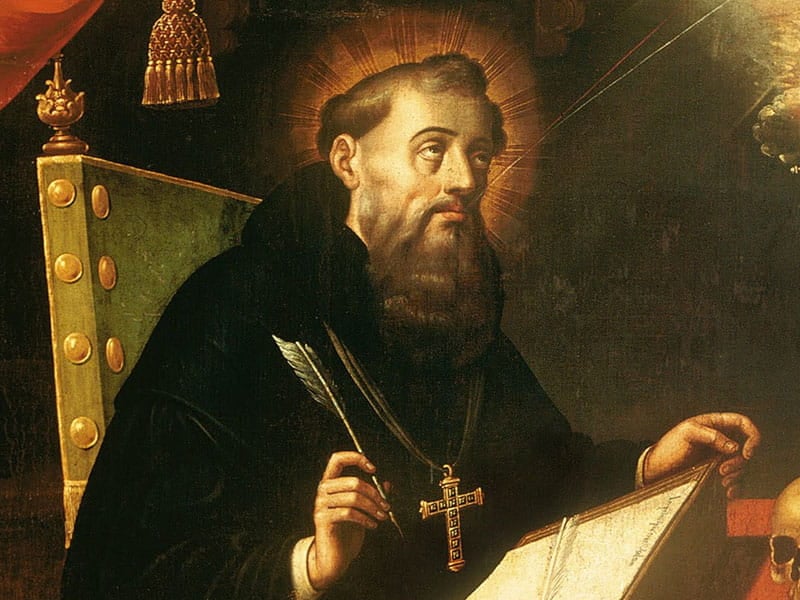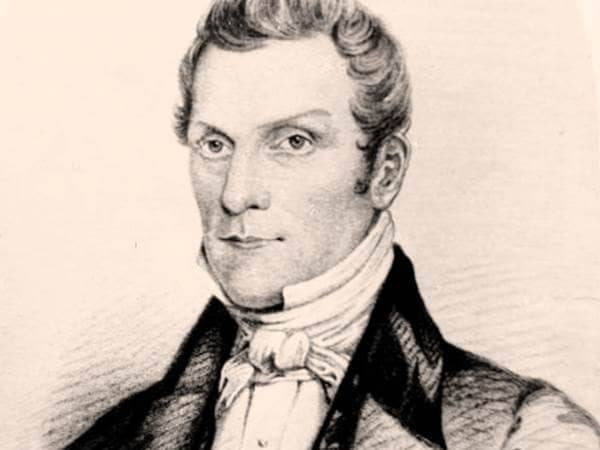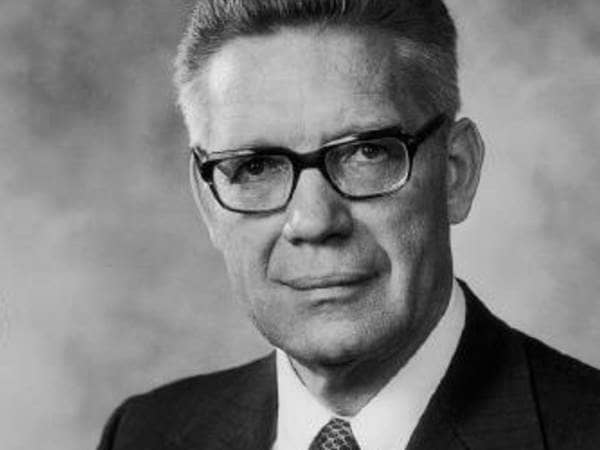
- Profession: Theologian
- Lived: 354 CE - 430 CE (Early Church)
- Nationality: African
- Known for: Influential early Christian theologian
Author of the extremely influential "Confessions," Augustine is arguably the first religious memoirist, and Christianity’s first—and possibly most influential—major theologian. A Berber born in present-day Algeria to a Christian mother and pagan father, both Roman citizens, Augustine was raised speaking Latin and studying rhetoric, debate and philosophy in order to pursue a career in Roman politics and administration. Though raised Christian, he became a follower of Manicheism—a highly dualistic offshoot of Judeo-Christianity from Persia that for a time was the main rival to Christianity. After studying and teaching in Carthage and Rome, Augustine took a teaching position in Milan, where he he met and befriended Ambrose, whose influence would contribute to his conversion back to Christianity. By his own account in “Confessions,” one day 32-year-old Augustine was sitting in a park with a fellow rhetorician talking about how others, including St. Paul and St. Antony of the Desert, had found it so easy to believe. He exclaimed, “What is the matter with us?” at which point he surrendered, and from nearby children singing a nursery rhyme, he heard the words, “Take up and read,” which he took as a sign to turn to the Bible.
Through “Confessions” and “The City of God,” as well as hundreds of sermons and theological treatises, Augustine would help shape Christian theology, and Western philosophy and thought in general. He is often characterized as a prude who overreacted to his own early debauchery by embracing his neo-Platonist training’s negative view of the body. There is some truth in this, but also a fair amount of spin by opponents. He had a long and loving affair with one woman, but she was a concubine his mother considered beneath his station. He was forced to leave her and enter a loveless engagement that eventually ended without marriage. His frank accounting of his struggles with his emotions around lust, love, theft and honesty, has led to some of the misunderstanding. Rather than portraying extreme behavior, though, his words reflect a person wrestling with heartbreak and harsh self-judgment. He is also credited with popularizing the idea of Original Sin, though his examination of the concept is far more nuanced and complex than that usually employed.
After his conversion, as a preacher and writer he worked aggressively against his former faith of Manicheism and other teachings determined to be unacceptable, gaining a reputation as the Church’s top heresy fighter. About a decade after his conversion, Augustine was elected Bishop of the African village of Hippo—a few miles from where he was born—(bishops were elected by the public without any specific requirements in those days), a position he held until his death 35 years later.
Through “Confessions” and “The City of God,” as well as hundreds of sermons and theological treatises, Augustine would help shape Christian theology, and Western philosophy and thought in general. He is often characterized as a prude who overreacted to his own early debauchery by embracing his neo-Platonist training’s negative view of the body. There is some truth in this, but also a fair amount of spin by opponents. He had a long and loving affair with one woman, but she was a concubine his mother considered beneath his station. He was forced to leave her and enter a loveless engagement that eventually ended without marriage. His frank accounting of his struggles with his emotions around lust, love, theft and honesty, has led to some of the misunderstanding. Rather than portraying extreme behavior, though, his words reflect a person wrestling with heartbreak and harsh self-judgment. He is also credited with popularizing the idea of Original Sin, though his examination of the concept is far more nuanced and complex than that usually employed.
After his conversion, as a preacher and writer he worked aggressively against his former faith of Manicheism and other teachings determined to be unacceptable, gaining a reputation as the Church’s top heresy fighter. About a decade after his conversion, Augustine was elected Bishop of the African village of Hippo—a few miles from where he was born—(bishops were elected by the public without any specific requirements in those days), a position he held until his death 35 years later.
Back to Search Results






